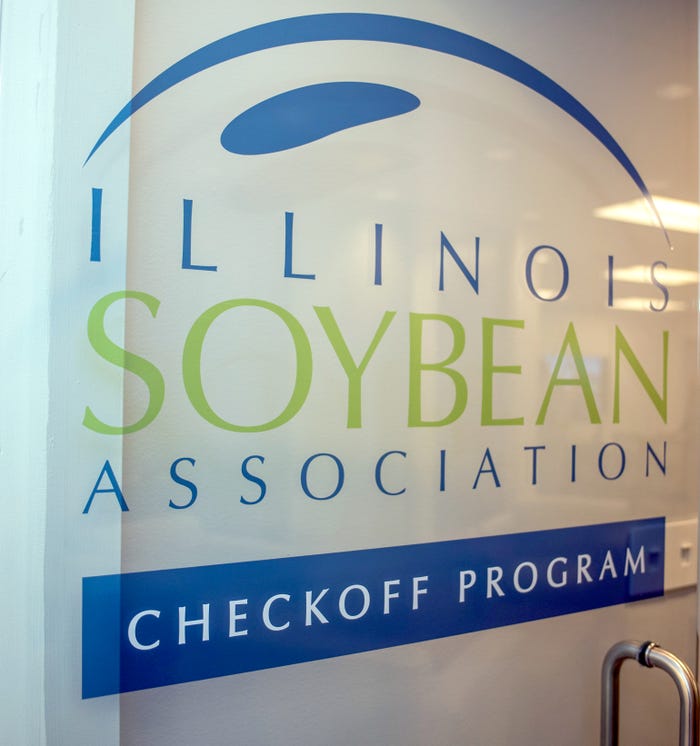
When the Illinois Soybean Association decided to invest $250,000 to open an office in Chicago earlier this summer, they did so with several goals in mind.
“We felt that we had a lot of stakes in Chicago and that we needed a presence,” says Daryl Cates, immediate past chairman of ISA and Columbia farmer. “It was a board decision that we’d worked on for at least two years.”
Why Chicago? Cates says more than 900 food industries are based there, along with more than 80 international consulates; plus, two-thirds of the state’s population lives in the Chicago area. “These are the folks who will influence our ability to produce more food,” he adds.
Craig Ratajczyk, ISA chief executive officer, says a Chicago office was the next logical step, given ISA’s work with Illinois Farm Families and frequent Chicago visits over the past several years, plus their desire to educate urban influencers. “Producers see increased rules and regulations because they’re made by urbanites who don’t understand what agriculture is about,” he adds.
Located at 190 South LaSalle, the 2,000-square-foot office offers conference room space about a block and a half from the Chicago Board of Trade. Cates says the association has made a three-year commitment to the Chicago office, spending just under 2% of its $13.5 million annual budget on office space, programming and an employee for the location. Of the $250,000 total, $100,000 goes to office rent. The remaining $150,000 covers staff and programming in Chicago.
Considered educational programming, Ratajczyk says the Chicago office is 100% funded by Illinois soybean checkoff dollars.
He adds that the location makes it easier for people to work with them. “It’s convenient for those we’re trying to reach in Chicago. They can walk down the street to talk with us, where they may not be able to take a day to come to Bloomington.”
 CHECKOFF: Considered educational programming, Craig Ratajczyk says ISA’s Chicago office is 100% funded by Illinois soybean checkoff dollars.
CHECKOFF: Considered educational programming, Craig Ratajczyk says ISA’s Chicago office is 100% funded by Illinois soybean checkoff dollars.

Since opening for business in Chicago, Ratajczyk says ISA has had more dialogue, including visits from two consulates and a group of Italian producers. The soybean export council held a meeting in the new office space.
“We’ve extended the offer to Farm Bureau, pork, corn and beef to use the office as they need to,” Ratajczyk says. He adds that prior to signing a lease, the ISA board approached various Illinois farm and commodity organizations about going in together on an office space. “They wanted to wait and see how it works out for us,” he says.
Feedback
Cates says he’s received honest responses from his soybean-farming neighbors: “They wanted to know, ‘Why in the world would you consider such a thing?’ But after I point out the population of the city and how those are the people who could start creating the rules of how we farm, the whole conversation turns around.”
Illinois soybeans add $7.48 billion to the Illinois economy and $28 billion to the U.S. economy, according to ISA. More than 57,000 jobs are supported by the soybean industry, both in and out of Chicago. And every $100 in added value created by soybeans and associated industries generates $241 in economic impact for Illinois.
Ratajczyk believes overall membership response to the office has been positive and says the board will continuously evaluate the investment.
In the meantime? “Our presence in Chicago is resonating well with government officials and those people we want to reach out to,” Ratajczyk concludes.
About the Author(s)
You May Also Like






